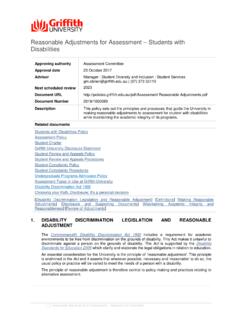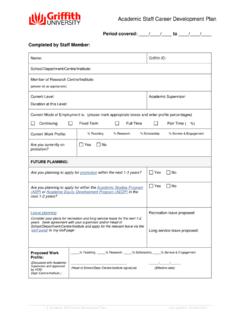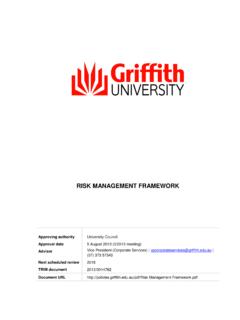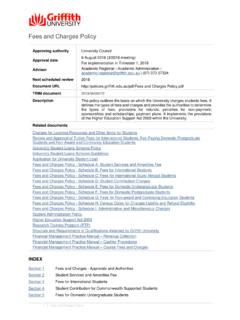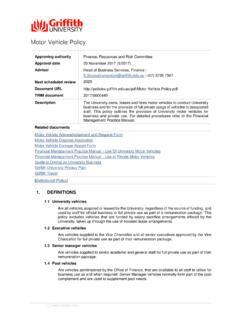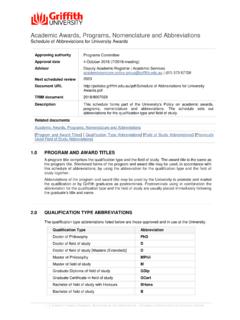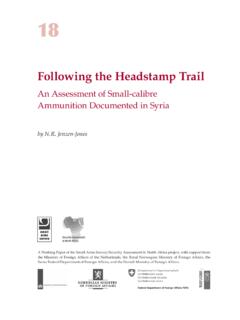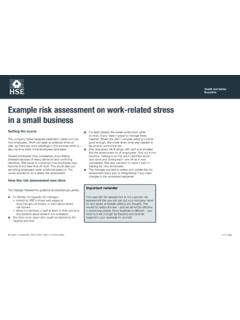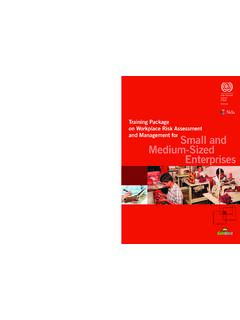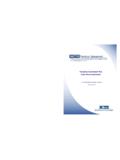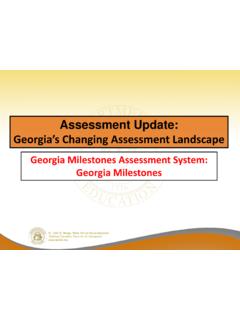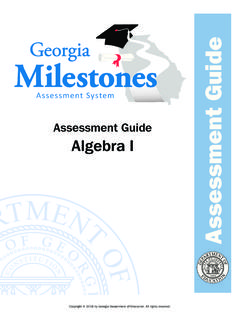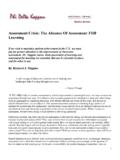Transcription of Assessment Policy - Pages - Griffith Policy Library
1 1 Assessment Policy Assessment Policy Approving authority Academic Committee Approval date 14 March 2019 (1/2019 meeting) For implementation in Trimester 3, 2018 Advisor Deputy Academic Registrar | Academic Services | (07) 373 57726 Next scheduled review 2024 Document URL TRIM document 2019/1002025 Description This Policy specifies the University's Assessment philosophy and the general principles that guide the University's Assessment practices in all courses regardless of campus, location, mode of offer and learning mode. Related documents Assessment Submission and Return Procedures Assessment Types in Use at Griffith University Reasonable Adjustments for Assessment - Students with Disabilities Conflict of Interest Policy End of Trimester Centrally Administered Examination Policy and Procedures Governance of Assessment and Academic Achievement Standards Group Assessment .
2 Self- Assessment and Peer Assessment Marking Guidelines Student Academic Misconduct Policy Student Review and Appeals Policy Student Review and Appeals Procedures Review of Decision Form Institutional Framework for Promoting Academic Integrity among Students Standards for First Year Assessment Quality Matters Higher Education Standards Academic Misconduct Policy - Higher Degree Research Candidates Proctoring of Examinations Policy Calculation of Grade Point Average Role Statement Course Convenor Role Statement Program Director [Philosophy of Assessment ] [Roles] [The Assessment Plan for a Course] [Moderation Processes] [Responsibilities of Examiners and Course Convenors] [Award of Overall Grades] [Reassessment] [Supplementary Assessment ] [Special Consideration and Deferred Assessment ] [Conduct of Students in Proctored Examinations] [Cheating, Plagiarism] [Notification of Marks and Grades] [Review and Appeal of Final Grade] [Disposal of Assessment Material] 1.
3 PHILOSOPHY OF Assessment Assessment is the process of forming a judgment about the quality and extent of student achievement or performance, and therefore by inference a judgment about the learning itself. Assessment inevitably shapes the learning that takes place; that is, what students learn and how they learn it should reflect closely the purposes and aims of the course of study. The aims of Assessment include: 2 Assessment Policy improving the quality of the curriculum (courses and programs); evaluating the effectiveness of the teaching process and facilitating continuing improvement; improving and promoting subsequent learning through feedback that is clear, informative, timely and relevant; formally certifying achievements for external audiences; and accountability to the University, accrediting bodies, employers and the wider community.
4 Assessment methods may take a variety of forms: the key criterion for choice among methods should be appropriateness to the learning outcomes. Assessment should be criteria based rather than norm referenced, and may include individual or collaborative achievement or both. The requirements for learner success should be made clear, and the overall strategy should be to develop in students the ability to evaluate the quality of their own work in order to equip them to function as professionals with a commitment to life-long learning. Assessment practices within the University are based on the general principles of criteria based Assessment . These are that the desired learning outcomes for a course of study are clearly specified; Assessment tasks are designed to indicate progress towards the desired learning outcomes; and the Assessment grade is a measure of the extent to which the learning outcomes have been achieved.
5 The standard of performance that is required for the award of a particular grade is a judgment that is based on the professional expertise of the various staff who contribute to the Assessment process and is informed by experience with accepted standards, including, where appropriate, standards in other institutions. There is no pre-determined distribution of grades as the outcome of assessing a group of students. Assessment of student learning is facilitated by systems using technology for the purpose of constructing, delivering, storing, comparing and reporting student Assessment tasks, responses, grades and feedback. Such systems are used to diversify the types of Assessment tasks, broaden the range of skills assessed, assure comparability of Assessment standards and consistency in achievement outcomes and provide students with more timely and informative feedback on their progress.
6 Technology may also facilitate the timely and efficient administration of student applications and decisions relating to Assessment . 2. ROLES Refer to the University's Governance of Assessment and Academic Achievement Standards procedure. 3. THE Assessment PLAN FOR A COURSE Student learning is gradual and cumulative, with qualitative changes taking place throughout the process. For this reason, the Assessment plan for a course should enable the teaching staff to engage in both formative and summative Assessment . Academic staff responsible for a course exercise their professional judgement in using a variety of Assessment methods that are relevant, valid, fair and appropriate to the aims and objectives of the course. Convenors of first year undergraduate courses and Program Directors are to be guided in the development of Assessment plans and the management of Assessment tasks by the Standards for First Year Assessment .
7 Assessment Methods, Types and Tasks There are four methods of Assessment commonly used at the University and five broad Assessment types: Examinations: selected and /or constructed response, practical and oral examinations; Assignments: written, planning, problem-solving, reports, research-based, practice-based; Assessment based on observation or record of practice; Assessment based on performance, presentation, creation or discussion; and Assessment based on research ( theses). 3 Assessment Policy Within each broad Assessment type a number of detailed Assessment types are used in course Assessment plans and these are specified in Assessment Types in Use at Griffith University. A range of Assessment types are to be used in a course s Assessment plan to assess the range of course and program learning outcomes.
8 A number of Assessment types may be integrated into a single Assessment task or each Assessment task may be representative of a single Assessment type. Assessment tasks are to be equivalent when the course is offered on more than one campus or in more than one learning mode (such as in person, print materials, in field and online). Equivalence does not require the tasks to be identical, they may be adapted to suit the needs of campuses or modes of study, but they are required to be similar in complexity and nature, and assess the intended learning outcomes of the course. The Assessment plan for a course in the Course Profile provides a summary of both formative and summative Assessment tasks in the course, including the Assessment type, number, weighting, the due date, the Assessment and marking criteria for each item of Assessment .
9 No course grade is to be determined solely by using a single summative item or a single form of Assessment . A dissertation, or other large forms of Assessment ( designs and inquiry based projects), are considered to be equivalent to multiple forms of Assessment , however, large items of summative Assessment should incorporate interim formative Assessment opportunities. Assessment should normally be spread across the teaching period, to provide time for students to respond to feedback from early Assessment items. This is essential in first year undergraduate courses. The Assessment plan also specifies how individual Assessment tasks are to be conducted for example in person in a designated examination centre or facilitated through information and communication technologies (ICT). Assessment plays a central role in student learning whatever the type or mode and the relationship between the purpose of the Assessment tasks and the intended learning outcomes of the course is to be clearly outlined in the Assessment plan.
10 Examinations for summative purposes are to be proctored in accordance with the Proctoring of Examinations Policy . Tests or quizzes may be administered regularly throughout the course for formative purposes to provide students with practice and feedback on their learning or used summatively to contribute a small percentage towards the final grade. These may not require supervision by teaching staff or a proctor. Tests or quizzes that are not proctored shall contribute no more in total than 20% of the marks towards the final grade. Approval of the Assessment Plan The Assessment plan for a course is documented in the submission for approval of the course (the Course Profile). In approving the course for offer, the relevant Dean (Learning and Teaching) shall have regard to the relationship between the Assessment methods, Assessment tasks and the learning outcomes expected for the course.
